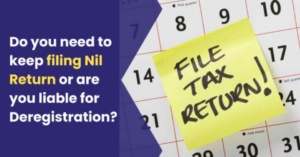As a member of Organization for Economic Development and Cooperation (OECD), and in response to an assessment of the UAE’s tax framework by the European Union Code of Conduct Group, the UAE has committed to ensuring standards related to Base Erosion and Profit Shifting (BEPS) are implemented.
During 2019, UAE introduced various Federal Legislation including:
- On 30 April 2019, UAE Cabinet of Ministers Resolution No. 31 Of 2019 was introduced concerning Economic Substance.
- On 11 September 2019, Ministerial Decision No. 215 for the year 2019 providing guidance on Cabinet Decision No.31 of 2019 was introduced.
The above legislations apply across the whole of the UAE, including all Free Zones and Financial Free Zones (such as the Dubai Multi Commodities Centre).
The regulations require companies and other business forms registered in the UAE that carry on one or more relevant activities to have economic substance in the UAE.
Companies in the UAE are expected to ensure their compliance with the new Economic Substance Regulations (ESR), and failure to do so will invite hefty penalties. Amid a number of financial challenges came with the Covid-19 pandemic, adhering to the UAE’s new ESR is now a mandatory and another reality for businesses to operate in the country.
Aimed at facilitating build business transparency, the UAE introduced ESR on April 30, 2019, and issued the guidance on the application of the regulations on 11 September 2019. The regulations require companies and other business forms registered in the UAE that carry on one or more “Relevant Activities” (together, “Relevant Activities”), to have economic substance in the UAE in relation to these activities, and to comply with notification and return filing obligations.
The ESR has been introduced to facilitate and cooperate with governments of high tax jurisdictions. The ESR is not a source of income and there will be no monetary or financial implications like VAT and excise tax as introduced in the UAE on January 1, 2018.
The objective for introducing ESR is to avoid shifting of profits from high tax jurisdictions to low or no tax jurisdictions. ESR has been implemented to tax heaven countries such as BVI, Cayman Islands, Jersey, Bermuda, Bahrain etc. to cooperate with high tax jurisdictions countries where corporate taxes should have been paid for transactions where economic substance would not be present in the UAE. ESR shall ensure that profits are taxed where economic activities are performed and where actual value is created.
ESR is applicable to NINE relevant activities and substance over form approach shall be applicable while assessing and identifying the applicability of relevant activities. The nine listed activities are Insurance, Banking, Investment Fund Management, Lease-Finance, Headquarters, Holding Company, Shipping, Intellectual Property Business, and Distribution & Service Centre Business.
ESR Compliance shall be performed in 3 phases: Phase 1: Identification and assessment of Relevant Activity & submission of Notification; Phase 2: Action Plan to meet Economic Substance Test (Assess whether business meet; compliance requirements and Substance Test); and Phase 3: Reporting to Relevant Authority.
Distribution & Service Centre, one of the relevant activities of ESR shall cater to plethora of Companies in UAE. Since UAE is strategically located globally, which provides access to companies to trade in or outside the UAE and procuring the goods from the manufacturing plant outside UAE which is mainly foreign connected companies of the UAE based Entity. Such kind of transactions would tantamount to applicability of Distribution & Service Centre Relevant Activity.





